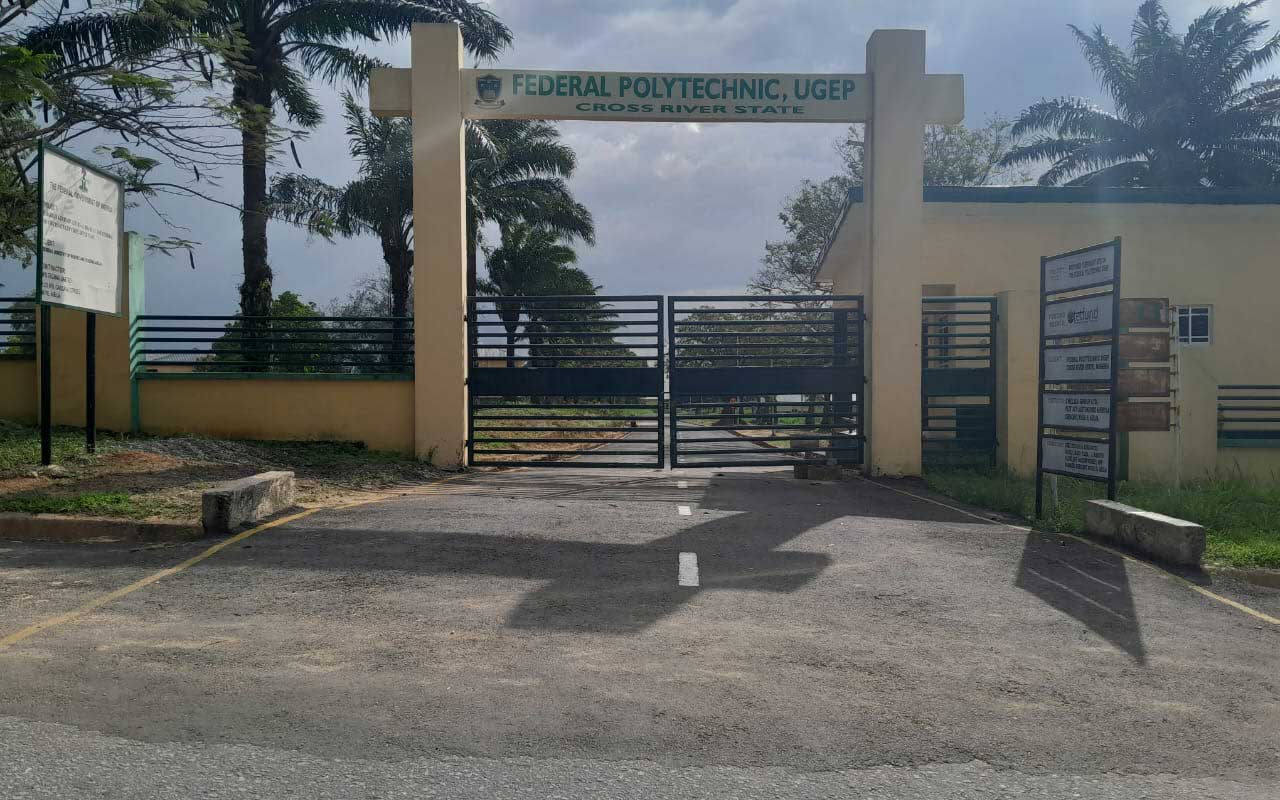
Reps give Tinubu 72 hours to unfreeze NSIPA accounts
The House of Representatives has discovered that the newly established Federal Polytechnic, Ugep, Cross River State, has just 142 students with about 154 academic and non-academic staff.
It also asked President Bola Tinubu to direct the Minister of Finance and Coordinating Minister of the Economy, Wale Edun, to unfreeze the accounts of the National Social Investment Programmes Agency (NSIPA) within 72 hours.
The federal polytechnic has spent about N600 million on personnel and overhead costs and another N38 million on local trips.
This came to light when the Rector of the Polytechnic, Prof Edward Okey, led the institution’s management to the House as part of the lawmakers’ oversight function.
The House Committee had invited federal polytechnics and some other technical institutions from the South-South, including Federal Polytechnic, Orogun; Federal Polytechnic, Ugep; Federal Polytechnic Oil & Gas, Bonny; Federal Polytechnic, Auchi; Federal Polytechnic, Ekowe; Federal Polytechnic Ukana and the National Institute of Construction Technology Management, Uromi, to appear before it.
Chairman of the Committee, Fuad Laguda (APC, Lagos) and members were also incensed that the polytechnic established in 2021 was spending such a huge amount of money for just 142 students.
Making his submission before the committee, the rector said the school spent N2 billion take-off grant to renovate the abandoned and dilapidated Ugep Community Secondary School to serve as a temporary campus while putting up structures at the Institute of Technology Management (ITM), which he said they eventually took over as their permanent site.
He said: “Our school was established in 2021 and was to start at a temporary site in the state polytechnic called ITM. But, when we got there, we could not get the state polytechnic to start the school. The first challenge we had was to identify a temporary site to start the school. That took us more than a year because Ugep is not a big town and to get a school for us to start was not an easy task.
“After going around the village, we ended up with dilapidated buildings of a secondary school called Ugep Community Secondary School.”
The principal of that school told us that those buildings were abandoned for 25 years. So, we have to renovate those buildings. It took us more than one year to renovate those buildings for us to start.”
The Guardian gathered that the school’s capital is N25 million, while the overhead cost is N159 million.
Laguda expressed the committee’s disappointment over the poor presentation by the institutions.
IN a motion sponsored by Deputy Speaker, Benjamin Kalu, and 20 others, the lawmakers said the suspension of NSIPA severely impacted the N-Power programme, leaving 395,731 beneficiaries unpaid a total of N81.3 billion in stipends already allocated under the amended 2023 and 2024 Appropriation Acts.
The House also urged the Minister of Humanitarian Affairs and Disaster Management to address administrative bottlenecks hampering NSIPA’s operations.
Kalu highlighted that NSIPA, established under the NSIPA Act, 2023, oversees critical poverty alleviation programmes such as the N-Power scheme, Grants for Vulnerable Groups, Government Enterprise and Empowerment Programme (GEEP), Conditional Cash Transfer (CCT) and the National Home-Grown School Feeding Programme (NHGSFP).
He noted that NSIPA’s mandate aligned with Tinubu’s Renewed Hope Agenda to cushion the effect of economic reforms on Nigeria’s poor and vulnerable populations.
However, Kalu expressed concern over the agency’s frozen accounts, which paralysed its operations for over three months, even after the reconstitution of its management team.
The Deputy Speaker criticised the account suspension, stating that it undermines the President’s poverty alleviation agenda by halting vital social welfare initiatives, delaying progress towards the Sustainable Development Goals (SDGs), and eroding public confidence in the government’s efforts to tackle poverty.
Kalu urged swift action to unfreeze NSIPA’s accounts, stressing the importance of restoring its functionality to meet the administration’s poverty eradication goals.
The motion was adopted, with the House resolving to transmit its resolutions to the Senate for concurrence.






